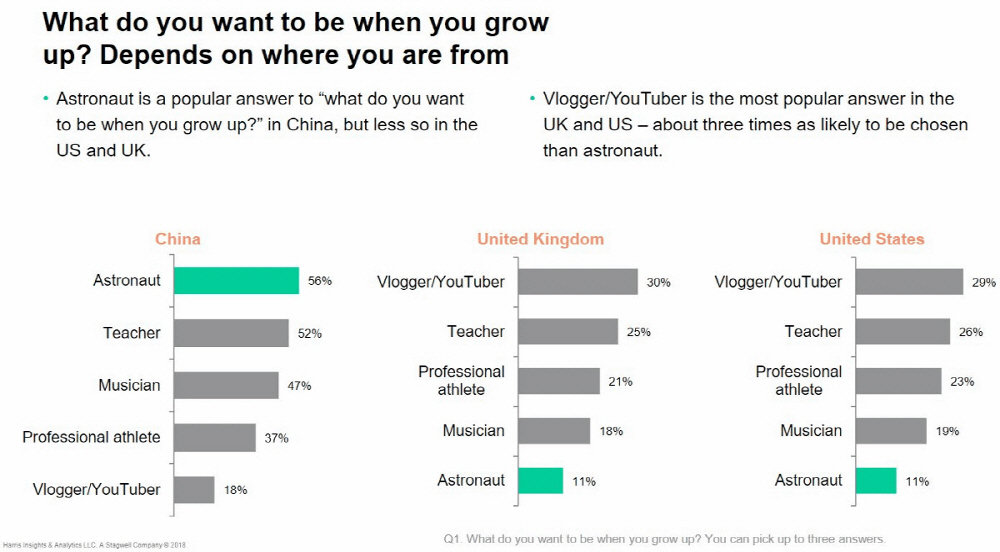
On July 16, 1969, the Apollo 11, launched according to the US Apollo Plan, made the first lunar landing of mankind. Since then, astronauts have been the object of admiration for children. However, recently, among American and British children, YouTubers are said to be more popular than astronauts as their future hope.
The Apollo 11 lunar landing has resulted in not only a victory in the space development race, a scientific or technological achievement, but also a great interest in science, engineering and mathematics for the younger generation. But recently, it is pointed out that the effect of the legacy that the Apollo Plan left behind for future generations is ending.
According to a survey conducted by market research firm The Harris Poll on the eve of Apollo’s 50th anniversary on July 15, 3,000 children in the United States, the United Kingdom, and China were asked about their interest in space. He asked the children to respond with multiple answers about what they would like to be in the future, such as astronauts, teachers, professional players, musicians, vloggers, and YouTubers.
As a result, in the U.S. and U.K., 30% of the total chose to become a vlog or YouTuber in the future. On the other hand, astronauts ranked at the bottom of the five occupations with 11%. In China, the top 56% said they want to become an astronaut, while Vloggers and YouTubers ranked at the bottom with 18%. The survey results show that China is more interested in space than the West.

In addition, the survey asked how much humanity will be able to advance into space in the future. Children said that in the future, humans will live in space or other planets, or that they want to go to space or other planets in the future.
By country, China had a lot of optimism and interest in space, and 96% of respondents said that humanity will live in space. In fact, 95% of respondents said they wanted to go to another planet. On the other hand, in the United States and Britain, although not as high as China, more than 60% of all children expressed support for humanity’s advancing to outer space or other planets or their own going to other planets.
This does not mean that American or British children have lost interest in space. To the last, I only feel more attractive about other things than my interest in the universe. Of course, it is clear that Chinese children are more interested in space than American or British children. The reason is not clear, but the excitement and stimulating image of space may have disappeared from the perspective of children who have already successfully landed the moon with the Apollo plan and that the United States has been active as the center of the International Space Station since the age of age. On the other hand, as China is a relatively latecomer in the space development field, it can stimulate children’s motivation, and it may be the result of placing an emphasis on science and space exploration values in education. Related information can be found here .


















Add comment